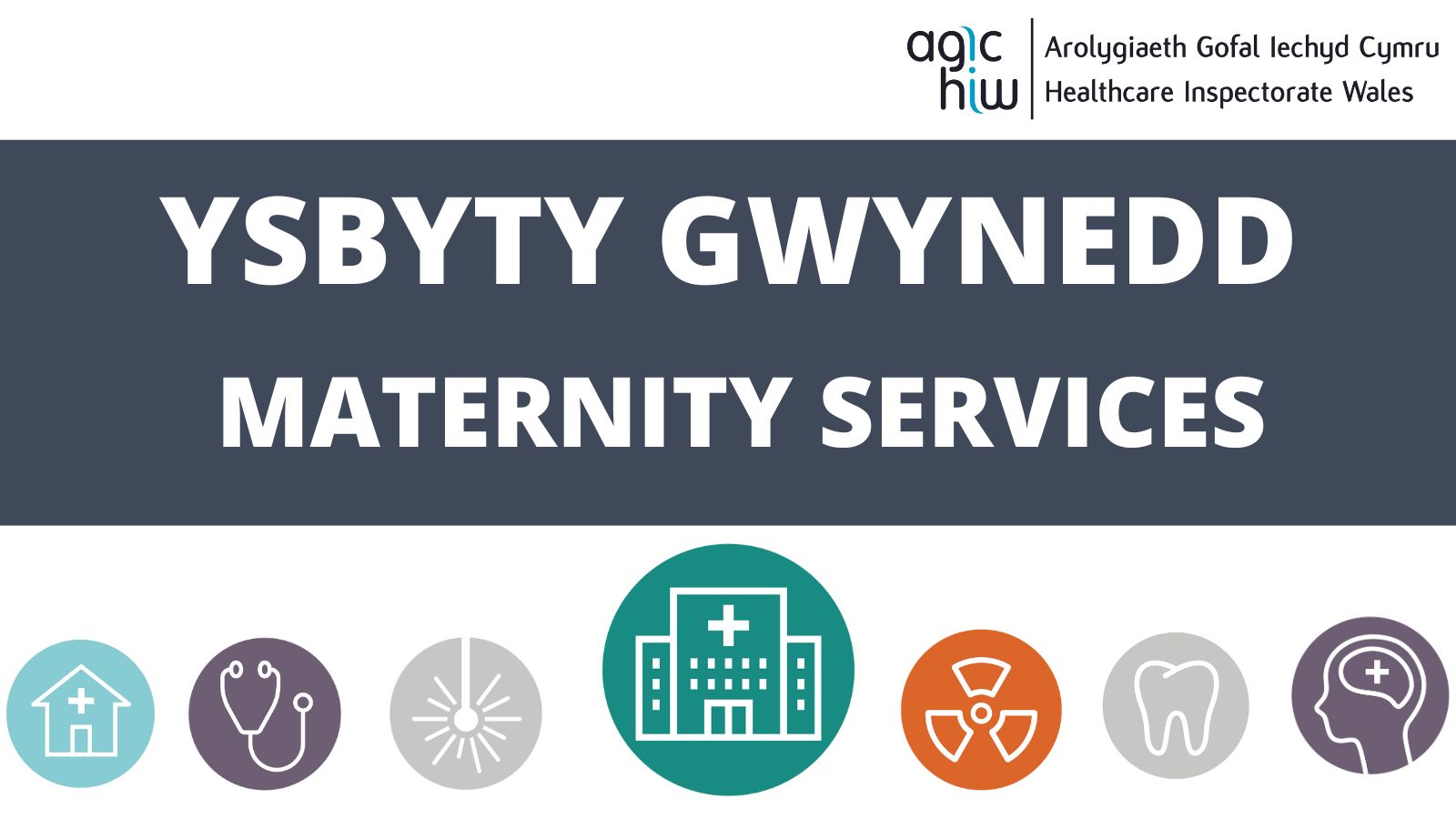Inspection Identifies Strengths but Improvements Required at Ysbyty Gwynedd’s Maternity Unit
Healthcare Inspectorate Wales (HIW) has published a report following an unannounced inspection of maternity services at Ysbyty Gwynedd, managed by Betsi Cadwaladr University Health Board. The inspection took place over three consecutive days in February 2025 and looked at the quality and safety of care being delivered within the Llifon Ward, which specialises in antenatal and postnatal care.

Inspectors found that women and their families were treated with kindness and respect, and that care was delivered in a clean, calm and welcoming environment. Staff were observed providing individualised, patient-centred support, and women had access to timely pain relief. All women and birthing people, and families that we spoke to during the inspection, and all questionnaire respondents, felt that staff treated them with dignity and respect. We saw health promotion information displayed throughout the unit, included a Best Start Hub, offering advice and support from pre-pregnancy through to early years in multiple languages. This was recognised as notable good practice, including specialist bereavement support and a ‘Rainbow Clinic’ for women newly pregnant after a previous pregnancy loss. The inspection team observed positive interactions during ward rounds, where women were able to ask questions and share their views with clinicians.
While the inspection highlighted areas of good practice, including positive feedback from women and families, effective medicines management, strong safeguarding procedures and a clear management structure, it also identified key areas that require urgent attention to ensure safe and effective care.
HIW sought immediate assurances in response to patient safety concerns identified during the inspection. The first involved weaknesses in medical handover and communication practices amongst staff, which inspectors found were not consistently effective or clearly documented. There was concern that without improvement, this could compromise the ability of staff to make safe decisions about care, particularly for women during labour. The second immediate assurance issue related to low compliance with mandatory training among obstetric staff. Obstetric staff are the doctors, midwives, and nurses who care for women during pregnancy, childbirth, and after the baby is born. Inspectors were not assured that all relevant staff had the up-to-date knowledge and skills required to deliver safe care. The health board must take prompt action to ensure training is completed and that appropriate mitigations are put in place to maintain safety in the interim.
The report also found that the process of gaining informed consent, especially for obstetric treatments, needs to be improved. Access to translation services was inconsistent, causing potential communication issues. Inspectors raised concerns about the management of the second obstetric theatre, the effectiveness of the Maternity Outpatient Assessment Unit, and the recording of key decisions during labour.
Inspectors noted that recent changes to midwifery leadership, with roles now covering the wider health board, had reduced senior staff visibility within the unit. Staff shared mixed views on leadership engagement and how their concerns were handled. They also raised concerns about the number of out-of-date policies, the need to improve how medical staff are involved in incident reviews and how learning is shared across the team.
Inspectors highlighted the need for continued focus on recruitment and retention to address staffing gaps and support safe, high-quality care. They also noted that all staff, including locums and bank staff, must receive appropriate induction.
Despite these challenges, the inspection found evidence of committed, professional teams working hard to deliver kind and dignified care under pressure.
Alun Jones, Chief Executive of Healthcare Inspectorate Wales, said:
This inspection highlights the dedication and professionalism of staff in delivering dignified, patient-centred care. It also identifies areas requiring immediate and sustained improvement. We urge the health board to act promptly, and we will continue to work closely with them to ensure progress is made.
February 2025 – Hospital Inspection – Maternity Services – Ysbyty Gwynedd, Bangor